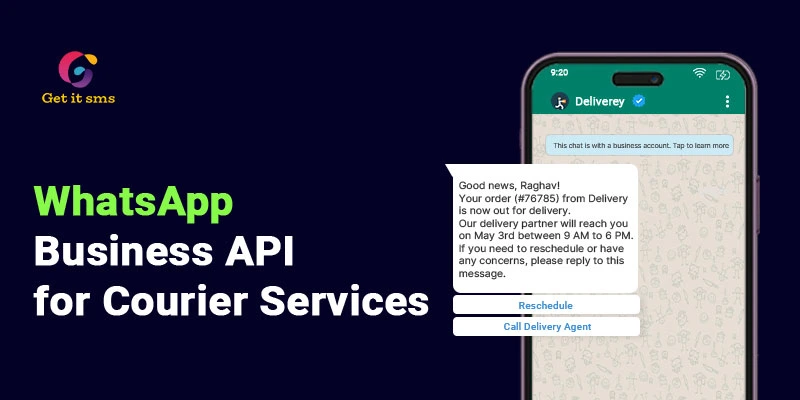Want To Send Bulk SMS?
If yes, then test our service for FREE.
Get a 1 Month Free Trial of WhatsApp Business API

TRAI, expanded as Telecom Regulatory Authority of India , is a statutory body of Government of India setup to regulate the telecommunication sector of India. In 2018, TRAI released the Telecom Commercial Communication Customer Preference Regulation (TCCCPR) to administer Unsolicited Commercial Communication (UCC) and to hold accountable the bulk SMS industry. The guidelines were framed to prevent malpractices and to provide more freedom to customer.
The latest TRAI guidelines mandate compulsory registration of companies who wish to communicate with their customers, with telecom operators for sending SMS. A chain of command is envisaged in guidelines, in which, companies and Bulk SMS service providers will be answerable to telecom operators who in turn will be responsible to TRAI. A Blockchain technology known as Distributed Ledger Technology (DLT) will be used to control this system.
The components present in the Blockchain are as follows
Mobile Subscriber: Mobile subscriber is the targeted customer of the bulk SMS campaign. He has full freedom to give his assent to receive a text message, he can take back his assent at any point of time of his choosing. He can file complaints in case of reception of unwanted and spam messages.
Principal Entity: It is the firm for which SMS marketing campaign is run by sending SMS to its customers. As per the latest TRAI guidelines, it is obligatory for the company to register itself with telecom operators.
Telemarketer: It is the Bulk SMS Service Provider which is hired by Principal Entity to send Bulk SMS to its customers. It must be registered on the DLT platform
Access Provider: These are the telecom operators who will be directly registered with TRAI and will act as nodal point for TRAI to enforce its guidelines.
Regulator: The role of regulator in this Blockchain is played by TRAI. It enforces compliance of its guidelines by auditing the operations. It prevents any malpractices and protects customer’s interests.
What’s New in TRAI guidelines?
Principal entity and Bulk SMS provider registration: It is mandatory for every business and telemarketer to register themselves with telecom operators for sending messages to their customers. In previous guidelines, only Bulk Message Service Providers needed to be registered with telecom operators. By making even businesses to register with telecom operators, TRAI is seeking to bring more transparency and accountability in the process.
Header Registration: In the latest TRAI guidelines for sending Bulk SMS in India, Sender ID will be renamed as Headers. Each Header must be registered and approved by telecom operators. This will create standardization and will assist customers in knowing the identity of the business.
Template Registration: Each SMS or template has to be approved by the telecom operators. This will reduce the arbitrariness in the content of actual SMS.
Message classification: There are three types of messages in the latest guidelines viz., Transactional Messages, Promotional Messages and Service messages. Transactional message route will be booked for Banks for sending OTPs. Implicit route will have service related informative messages, whereas if a customer has categorically opted for delivery of promotional message from a particular company then it will come under the Explicit category. Promotional messages including discounts, sales etc can only be delivered to the NON DND numbers.
Scrubbing : It refers to the practice of matching the actual SMS content with pre registered template submitted by Principal entity to telecom operators. If there is any discrepancy found between the content of template and the actual SMS, then message is blocked by telecom operator. This filtering happens in real time.
Customer authorization: Customer is granted complete control in receiving or blocking the messages. The list of authorizations that a customer has given will be presented to him on a single dashboard so that he can make an informed decision on the number and nature of consents he has authorized.
Enhanced flexibility to customers: In the new rules, the customers, have been provided a time-window where they can regulate their choices based on a definite time or day and allow certain kind of promotional messages regardless of their selected biases.. It gives customers flexibilty to receive messages at a certain day and also at a certain time. For example, customer may set up his preference to receive message at 3PM on Sunday.
Complaint mechanism: Customers are authorized to file complaints regarding violation of their preferences via different mediums like SMS and call.
The objective of new guidelines is to bring transparency and accountability in the system and it is anticipated that with deployment of Blockchain-based DLT platform spam and other malpractices can be reduced .
Recent Posts





 within 24
Hrs +
60
Days Free API Panel
within 24
Hrs +
60
Days Free API Panel



